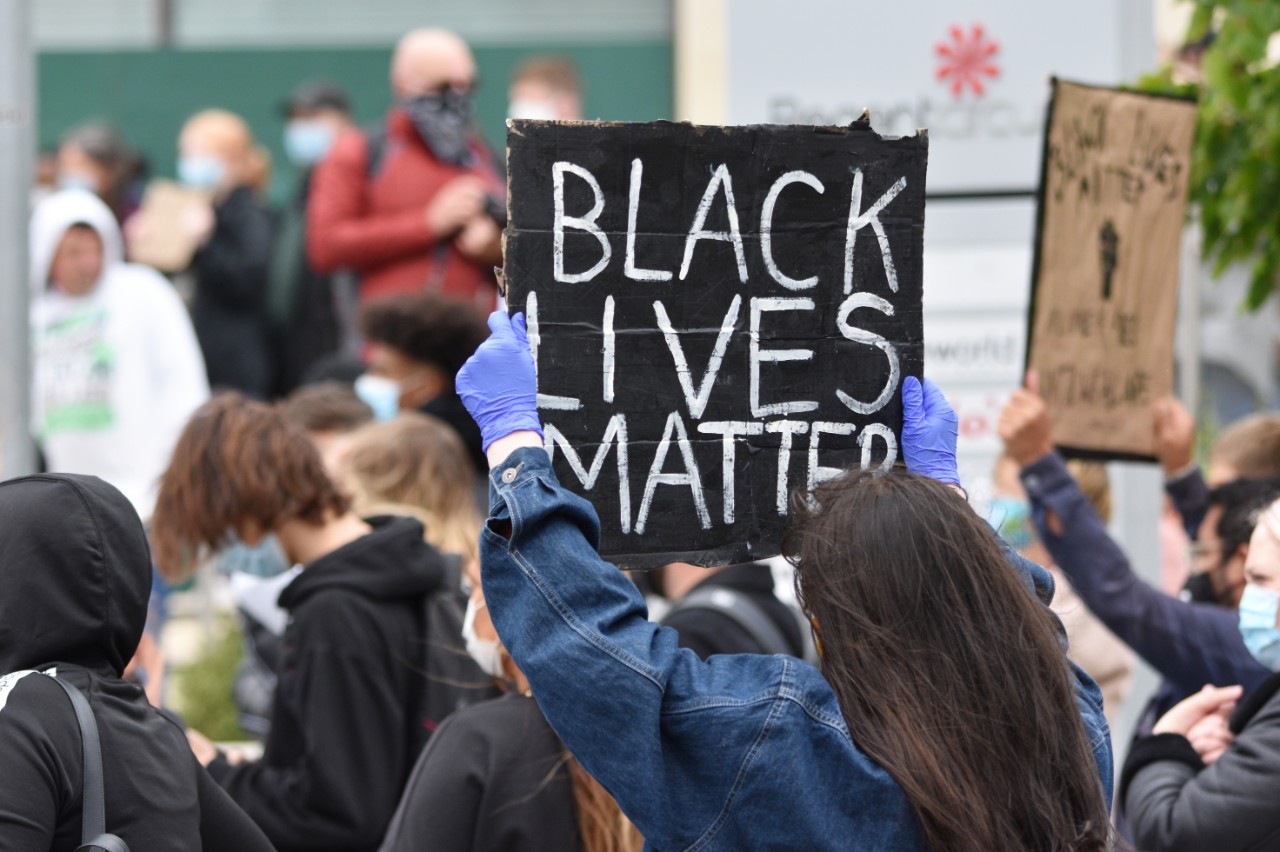Opinion | Thursday, 18th June 2020
More than 20 years on from the Macpherson report, we still need to address Britain’s record on race and policing
BAME communities should be actively involved in ongoing inquiry into racial injustice, says Kevin Wong

By Kevin Wong, Reader in Community Justice and Associate Director of the Policy Evaluation and Research Unit at Manchester Metropolitan University. Kevin Wong has advised police forces on the adoption of the Macpherson report’s findings, and sat on the British Transport Police Hate Crime Scrutiny Panel. He co-edits the British Journal of Community Justice, which has just published a special edition on hate crime in the UK.
The police killing of George Floyd in May has sparked unprecedented national and international protests and condemnation about police brutality and racial injustice.
The hashtag #blacklivesmatter, coined in the US seven years ago to highlight police abuse of African Americans has trended globally on social media. There have been anti-racism demonstrations and marches all across the UK, and public statements of solidarity have come from all quarters, including the police.
Their leaders issued a joint statement on June 3 where they declared: “We stand alongside all those across the globe who are appalled and horrified by the way George Floyd lost his life. Justice and accountability should follow…”
Will George Floyd’s killing become a catalyst for a step-change in tackling racism and racial inequality in the UK?
Here, this tragic event appears to have tapped into pent-up frustrations, hurt and injustices that stretch from the very recent – the higher death rates of Black, Asian and minority ethnic (BAME) individuals from Coronavirus (COVID-19) - to the centuries old inhumanity of slavery.
This makes for a wide and expansive set of genuine grievances and begs the question of government and policymakers – where to start?
As the movements to condemn racial injustices in the UK, United States and elsewhere have rightly gathered momentum, it is important that in the UK we do not lose sight of the urgent challenge that George Floyd’s murder has brought into focus.
Macpherson report
On policing and racism - it’s worth remembering that we have been here before.
The racist murder of Stephen Lawrence in London over two decades ago led to a public inquiry and the publication of the Macpherson Report in 1999. Regarded as a watershed in UK race relations, the inquiry found that the Metropolitan Police had been institutionally racist in their investigation into Stephen’s murder.
The report made 70 recommendations on police practice, accountability and racially motivated crime – addressing many of the same issues which George Floyd’s murder have highlighted.
So what has changed in the UK since 1999?
To mark 20 years since its publication, the Commons Home Affairs Select Committee initiated an inquiry in 2019 to answer this very question. But it closed because of the general election and has lain dormant until it was reopened on June 5. According to Yvette Cooper, the Committee Chairperson (and a former Shadow Home Secretary) this was in response to the killing of George Floyd and reports that BAME communities have been “more frequently penalised under the COVID-19 lockdown rules.”
This inquiry received little media attention in 2019. The Committee’s reopening of the inquiry in the wake of George Floyd’s murder has been drowned out by the demonstrations and marches of anti-racism protestors across UK since then; and over the weekend, the violence from far-right groups in London.
It is one of the few – in fact only - considered proposal so far to attempt to address the palpable sense of racial injustice in the UK. But it is one that is in serious danger of being overlooked.
At this time - another watershed moment in UK race relations - the Home Affairs Select Committee is ready to go. Their so far overlooked and under-reported inquiry is important. It can provide an immediate opportunity for long pent-up grievances about a critical aspect of state responsibility - policing and hate crime to be put under the microscope.
Now titled as: “The Macpherson Report: twenty-one years on”, the deadline for submitting evidence to the inquiry has been “extended till the 30th June.”
Given the heightened tensions and disquiet that George Floyd’s murder has evoked, this extension of less than a month seems hardly adequate to allow organisations, individuals and communities time to collect themselves together; to reflect and collate evidence and testimony to submit to the inquiry.
After all, what’s the hurry?
The police leaders’ June 3 joint statement acknowledged that:“Policing is complex and challenging and sometimes we fall short. When we do, we are not afraid to shine a light on injustices or to be held to account.”
Ongoing inequality
The task of piecing together the evidence – to understand and appropriately respond to these injustices is equally complex and challenging. Arrest rates - as just one facet of policing illustrates this complexity and inequity.
Government figures show that across England and Wales in 2017/18, black people were over three times as likely to be arrested as white people.
But this varies by geography:
- In Dorset black people were almost 12 times as likely to be arrested as white people.
- The arrest rate for Asian people was nearly 3 times higher than the rate for white people in West Mercia.
- In London 53% of people arrested were from Asian, black, mixed and other ethnic groups combined. In comparison, 40% of Londoners were from these combined ethnic groups at the time of the 2011 census.
This racial disproportionality in this one aspect of policing is also reflected across other areas of policing such as deaths in custody and the rest of the criminal justice system. The 2017 Lammy Review found that that:“Despite making up just 14% of the population, BAME men and women make up 25% of prisoners, while over 40% of young people in custody are from BAME backgrounds.”
Given the heightened tensions and disquiet that George Floyd’s murder has evoked, this extension of less than a month seems hardly adequate to allow organisations, individuals and communities time to collect themselves together; to reflect and collate evidence and testimony to submit to the inquiry.
Government leadership in response to the racial injustice brought to the fore by the murder of George Floyd has up until recently been woefully absent.
Boris Johnson’s promise this week of a: “…cross-governmental commission to look at all aspects of inequality - in employment, in health outcomes, in academic and all other walks of life.”– has been slow in coming. Although welcome, it will take time to set-up, establish its brief and may be too wide-ranging and cumbersome to provide the sharpness of response that is required.
At this time - another watershed moment in UK race relations - the Home Affairs Select Committee is ready to go. Their so far overlooked and under-reported inquiry is important. It can provide an immediate opportunity for long pent-up grievances about a critical aspect of state responsibility - policing and hate crime to be put under the microscope.
What should the Government and the Committee do?
Recommendation 1
The Government and Committee should actively involve BAME communities in the inquiry – to draw on their lived experience - as an opportunity to make a start on addressing racial injustice in the UK.
Recommendation 2
The Committee should extend the time to for further evidence and widen the inquiry’s remit to also examine police restraint procedures and the use of body-worn cameras.
These were not considered at the time by the Macpherson-led inquiry but are at the sharp-end of policing practice today.
Recommendation 3
At the time of the Macpherson Report police accountability and scrutiny was a critical issue. In 1999 we had police authorities, now we have police and crime commissioners. The current inquiry should examine the record of police and crime commissioners to adequately represent the interests of their BAME communities and hold the police to account for racial inequities.




